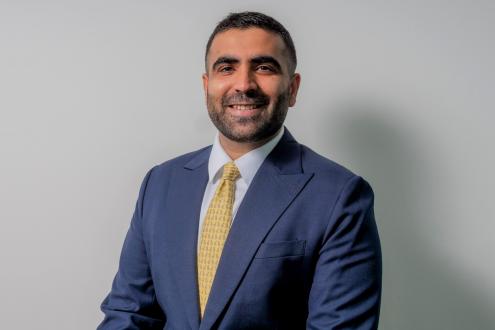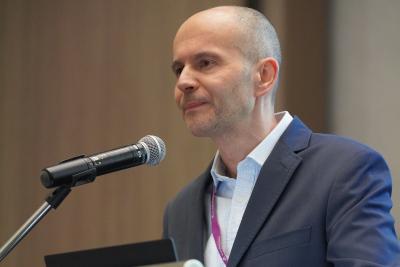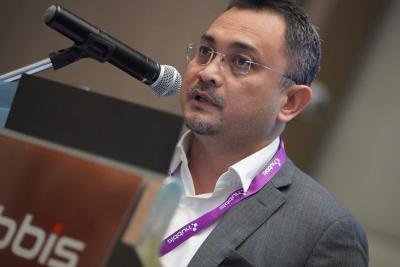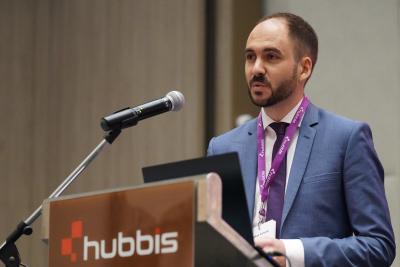Citizenship and Residency – the Opportunities and Trends for the year ahead
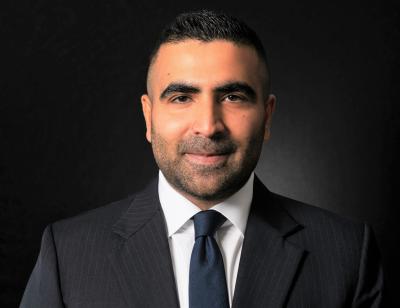
Nirbhay Handa of Henley & Partners
May 27, 2022
Nirbhay Handa is Group Head of Business Development at Henley & Partners and spoke at our recent Malaysia Wealth Management Forum in Kuala Lumpur on April 13. He explained how alternative residences or citizenships are even more in demand since the pandemic and then since geopolitical tensions have risen around the globe. He told delegates that domicile diversification is essentially a new element of astute estate and wealth planning for HNWI and UHNW clients, and that, coupled with real estate investment, can offer both returns and peace of mind.
Henley & Partners has championed the investment migration industry for more than two decades. The firm has grown rapidly in the past five years, particularly since the start of the pandemic. The firm has expanded its global footprint fairly aggressively, with 35 offices globally today, and plans to open another 12 or more this year, including new offices in the Middle East, Africa and South America.
Henley’s two core activities
The firm has two core businesses. One is advising private clients on their options and helping them execute, and the second is advising government on the inward investment migration programmes.
When it comes to private client advice, Henley works closely with the wealth management industry and associated professions. The firm’s advisors are in constant liaison with private bankers, private client lawyers, financial advisors, IAMs, tax advisors, corporates, fiduciary companies, and others who refer clients.
Working with the wealth industry
They then work on a fee share arrangement, and wealth market incumbents can rest assured that Henley is a totally benign partner, never going anywhere near any clients for investment advisory and instead focusing entirely and exclusively on investment migration. Moreover, they can often also reciprocate referrals to our business partners now that they have an extensive client base and geographical coverage.
There are two primary models Henley uses in its work with its intermediary partners. One option is a fee-sharing model for successful client referrals. The other – and this is becoming more prevalent – is the reciprocal referral basis, which works particularly well in the major financial centres worldwide.
Core to estate and wealth planning
“Residence and citizenship planning is now very much one core to the smart estate and wealth planning of any sensible HNW and UHNW client and family,” Nirbhay told delegates.
Naturally, these clients are aiming to look well beyond the next five or 10 years to a legacy for their families and positioning themselves for the future is increasingly valued. They are thinking about whether countries that are stable now will be so in the future. They are considering how and where security and privacy can be safeguarded. They are also thinking about how to invest — ensuring that their children and future generations are able to benefit from their wealth.
Residence or citizenship?
Nirbhay zoomed in on the differences between residency and citizenship. “Malaysia does not allow dual citizenship”, he reported, “and therefore, it is the residence-by-investment programmes that tend to be more popular with the Malaysian families. Citizenship is a physical passport that you get in your hand, it gives you the right to vote, and provides you with protection from the state. Permanent residency, on the other hand, could be temporary. It doesn't give you a passport— but it does give you a residency card. And sometimes, permanent residency can lead to citizenship through naturalisation.”
He addressed the core rationale for alternative residence or citizenship to have become part of smart, robust wealth planning.
A world full of risks
“We live in such a volatile world, portfolios are becoming diversified and multi-jurisdiction to reduce concentration risks, — wealthy individuals too can de-risk by having different homes and alternative residences around the world. These have become one of the ultimate wealth management tools.”
“And to prove that, our biggest client group worldwide today is from the US, with an explosion of activity from those clients in the past two-plus years. People from the US who can afford to increasingly want to de-risk from potential radical fiscal policies that may come through in the US, and boost their healthcare diversification.”
He pointed to the well-known Henley Passport Index that ranks which passports are strongest in terms of visa-free travel globally. He said that Japan is ranked number one globally, Singapore and South Korea are incredibly strong too, while the Malaysian passport is very well ranked.
Domicile diversification
“Domicile diversification is an extremely relevant macro concept in today's world because it gives you the ability to hedge your overall sovereign risk by holding multiple residencies and assets in different jurisdictions across the globe, and being able to move to those alternative locations by right,” he reported. “And in Asia, although there are some really strong passports, others such as the Philippines, or Thailand or Vietnam or India are far weaker, considerably more restrictive.”
He then highlighted some of the preferred jurisdictions for Henley clients. “I do not have time to delve into each country and their programmes, but I do just want to give you a broad idea of how these programmes are structured,” he said.
A taster of the options
And he pointed to excellent programmes in Malta, Greece and Portugal in the European Union. He also mentioned Montenegro, a fairly new entrant to the citizenship-by-investment space effected through real estate investment and a donation, as well as Turkey, which requires real estate investment or a fixed deposit bond with a Turkish bank.
“It is worth noting that by investing in real estate, you are often buying into a high performing asset in these countries, so there is also economic value in that investment and of course coupled with the great advantages coming from the additional residency along with it. What could you buy in Hong Kong or Mumbai or much of Asia for USD250,000? Mumbai prices are more than Manhattan for real estate. But in Greece, we can get you a beautiful home and get you a Schengen residency along with it.”
No need to actually migrate
He added that applicants must also understand that they do not need to move country, as these programmes allow clients to stay only a few days each year. “This is a wonderful hedge against global uncertainty,” he reported. “The more diversified you are, the better placed you are in your wealth preservation and estate and legacy planning.”
He also drew attention to other programmes, for example, the very popular UAE Golden Visa, the Australian Global Talent Independent Visa in Australia for high calibre tech entrepreneurs, and the UK Global Talent Visa, which had been extremely popular with high calibre Malaysian tech entrepreneurs.
Smart planning
He concluded his presentation by reiterating that these programmes offer a hedge and diversification, and that the investment migration industry was no longer simply about obtaining visa-free travel for those with weak passports or who were worried about politics at home. “This industry has become all about becoming a major wealth management tool, as families seek diversification of assets, as well as alternative lifestyles, and more opportunities for their future generations. The world is your oyster…”

Group Head of Business Development at Henley & Partners

More from Nirbhay Handa, Henley & Partners
Wealth Solutions & Wealth Planning
The Rise of Global Citizens from Asia: Trends and Developments in Investment Migration
Strategy & Practice Management
Henley & Partners: Working with Asia’s HNWIs and Wealth Managers to Promote Investor Migration
Latest Articles


